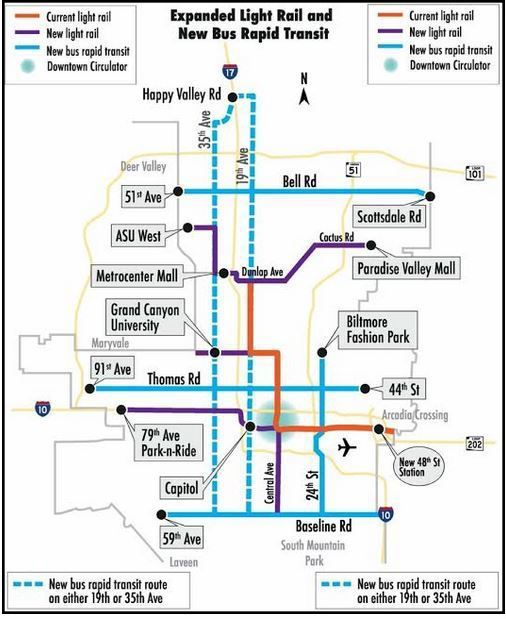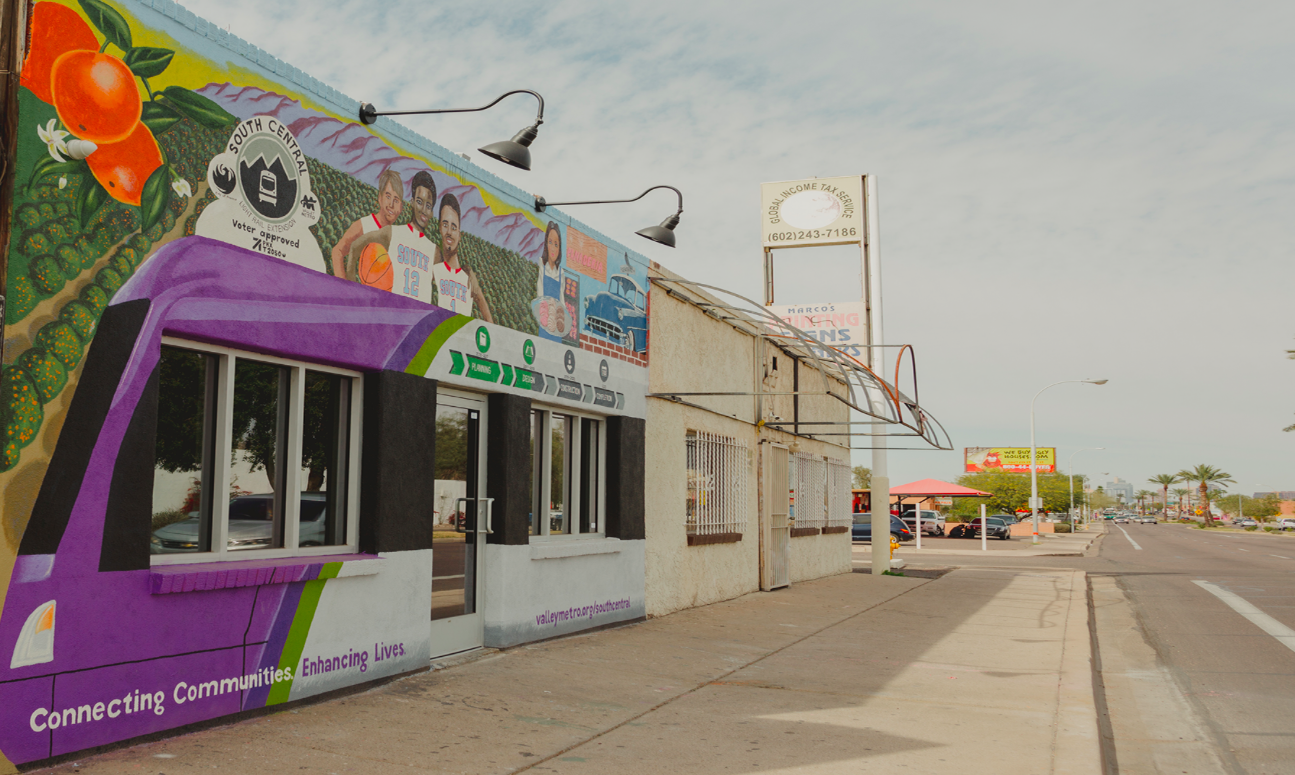Dark-money out-of-state oil interests are bankrolling a ballot referendum that would quash Phoenix's popularly supported plans to build a light rail network, new documents help confirm.
This month, Phoenix voters will be asked to overturn Prop 104, which was approved overwhelmingly by Phoenix voters in 2015 to generate billions toward a regional system of light rail. Prop 105, up for vote Aug. 27, would instead divert the money to road projects.
But, according to records uncovered by the local alternative weekly newspaper, the Phoenix New Times, the group behind the new ballot measure is no a rag-tag team of south side business owners — as they have portrayed themselves. They are receiving funding and instruction from groups with ties to the billionaire oil industrialist Koch Brothers.
Many observers — including Streetsblog — have suspected the attack on transit, like similar efforts in Nashville and other cities, was tied to the Koch Brothers massive political network.
New emails obtained by reporter Steven Hsieh show that Prop 105 was coordinated behind the scenes by Scot Mussi, president of the Arizona Free Enterprise Club, a dark money group.
That "club" is a 501(c)4 nonprofit, meaning it doesn't have to disclose its donors. But in 2017, the group received $110,000 in funding from a political arm of Charles and David Koch, according to opensecrets.org, a political transparency nonprofit. That was about a fifth of the organization's total annual budget. The watchdog group Energy and Policy Institute, calls the Arizona Free Enterprise Club a "front group" that works to undermine political support clean energy in the state.
An email exchange between Mussi and the face of the opposition — a local small business owner named Celia Contreras — shows Mussi was revising and editing the language for Prop 105. Emails also shows Mussi was directing the signature-gathering effort. The organization used paid signature gatherers to collect the needed 20,000 signatures to introduce the ballot measure, offering $5.68 per signature, Hsieh reports.

Contreras, who owns a modest auto repair shop on South Central Avenue, and other businesses local business owners began their campaign last year after learning plans for South Central Light Rail would reduce the street with from four lanes to two. She believes the change would jeopardize her small business.
But Contreras told the New Times that when dark money outfits got involved and turned their concern into a larger assault on light rail citywide, their effort was tainted.
"They just used the businesses," Contreras told the New Times. "They don’t care about us."
She said she has not been involved with the group — which calls itself "Building a Better Phoenix" — since October.
Prop 104, the original pro-transit measure, passed in 2015 by an overwhelming 10-point margin. It raised the sales tax by 0.3 percent to build $31 billion in light rail lines and expand bus service, both to the south and west.
Only one, 28-mile light rail line has yet been constructed, and it has been the focus of the region's smart growth efforts. Five additional expansions would be halted if voters vote "yes" on 105 and the hot, fast-growing region would be left with almost no alternative to driving for decades to come.






